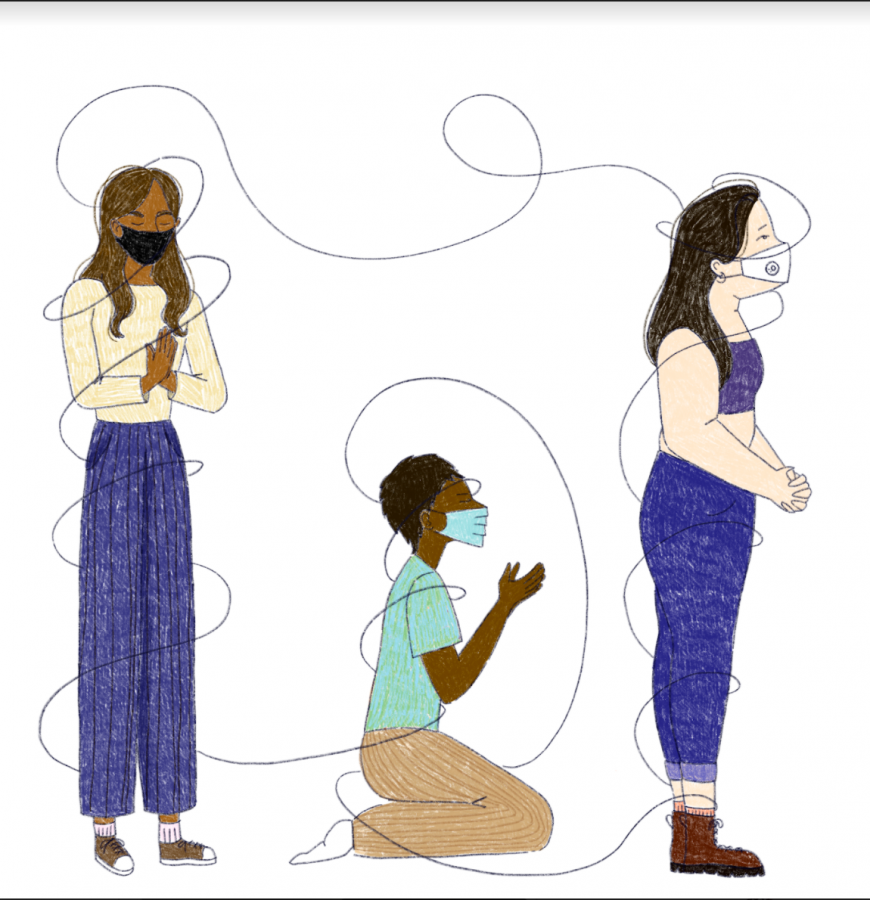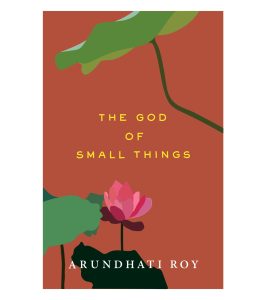The Religious Resurgence Motivated by COVID
February 26, 2021
Americans have always been regarded in a global context as robustly religious, and in light of the events of the last eleven months, it’s no surprise that more and more people are turning their focus to their respective belief systems. Almost a year after the COVID-19 pandemic put the world on pause, roughly three out of ten Americans reported a significant enhancement of their faith as a result, as opposed to the majority that stayed consistent in terms of their level of devotion. In turn, the responding religious resurgence has manifested itself into day-to-day life in quarantine in more ways than one.
The very idea of religion rests on the promise of a steadfast source of support, even when everything hits the fan (the economy crashes, the country becomes polarized in their politics, a virus kills almost 500,000 citizens in a matter of months, to name a few examples)—and it’s a natural human response to cling to the familiar in the midst of the unfamiliar. To expand on this, the American Psychological Association recently interviewed Bowling Green State University professor Kenneth Pargement, who has spent the last four decades studying the intersection of mental health and religious dedication. In terms of how to cope in a crisis, Pargement remarked that “people who make more use of positive religious coping methods had better outcomes than those who struggled with God, their faith or other people about sacred matters.”
In particular, many Black religious sites, who have also had to navigate recent racial unrest, have started to mold their material around the topic of mental health specifically. In the case of the Catalyst Church in Philadelphia, many of the attendees initially felt they had been robbed of their place of comfort. Their days were spent at home, devoid of activity—that is, until the church started to incorporate mental health topics into their messages. With the help of psychologist Alfiee Breland-Noble, who doubles as the director of the AAKOMA project (a nonprofit that aims to support people of color in their mental health journey), the Catalyst Church was able to encourage the same vulnerability with these conversations that they usually see in during regular worship. “COVID undoubtedly has escalated [the mental health] conversation in great ways,” says Keon Gerow (senior pastor) to Kaiser Health reporter Aneri Pattani. “It has forced Black churches—some of which have been older, traditional and did not want to have this conversation—to actually now have this conversation in a very real way.”
However, the recent change is not exclusively self-motivated. In April of last year, the University of Vermont hosted Associate Director of UVM Humanities Ilyse Morgenstein Fuerst to speak on the state of spirituality in the year 2020. In the context of a national crisis, Fuerst drew connections between religious activity spikes and involvement in charitable causes. “We see religious innovation more than we see a flocking to, or a fleeing from, religious organizations,” she commented. “So, for example, after World War [II], we see a real resurgence of American liberal religion … like feeding the poor becomes a number one focus … But we see folks organizing around the greater good and doing that in religious organizations and institutions.” And, considering the eight million people that have fallen under the poverty line as a result of the pandemic, there is more than enough opportunity to do so. In fact, Americans of all major religions have swarmed to support those who are particularly at risk. Faith-motivated organizations, such as Convoy of Hope or The Zakat Foundation of America, almost immediately started channeling tremendous resources during the initial outbreak of COVID-19 in the spring of last year. The Samaritan’s Purse was also quick to organize a makeshift hospital in the middle of Central Park when infections began trending upwards, complete with sixty-eight beds and a fully equipped staff. Since the onset of the virus, they have continued to launch field hospitals in various locations of the United States, in addition to amassing millions of dollars in donations for meals and supplies. “It is extremely important that people use their beliefs in a way that makes them feel empowered and hopeful,” according to Thomas Plante, professor of psychology at Santa Clara University in an interview with the American Psychological Association. “Because it can be remarkably helpful in terms of managing stress during times like these.”
The movement is not without its downsides, however, and can morph into a breeding ground for defiance and desperate contrarianism. The concept of religious deferral (the belief that one’s life is completely in the hands of a higher power) has become increasingly popular when it comes to following safety protocol. This is best represented by the recent outcry to exempt churches from COVID-19 protective measures, such as mandatory social distancing, requiring masks and limiting capacity. In fact, according to Pew Research Center, about a third of states have no regulations whatsoever regarding religious gatherings, and many more have incredibly vague and somewhat inconsistent rules. The federal government appears to be in agreement—when New York Governor Andrew Cuomo enforced strict worship regulations on areas orange (medium on a scale rating severity of COVID-19 in New York) or worse, he was promptly struck down by the Supreme Court on the basis of enacting “extreme” and “inflexible” legislation.
All in all, it’s hard to determine which side of the coin is having a bigger impact on case numbers themselves. It’s safe to say, however, that the country is far more unified than it was twelve months ago, and increased participation in charitable causes has shown how remarkable said unity can be. Relationships within and across faith-based communities have strengthened as survival becomes the main concern. Though they are diverse in their practices, the many belief systems of America share common principles of generosity, respect, and dignity—all of which are much needed in times of crisis.











